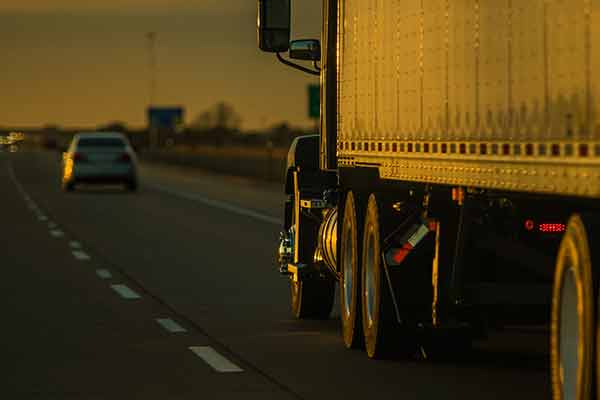


Industry & Consumer Impacts
Passenger vehicles and heavy-duty commercial trucks are not the same. Projecting a passenger vehicle construct onto the trucking industry dynamics is a massive mistake.
There are very significant impacts related to the number of trucks on the road, vehicle costs, and range implications that will ensure consumers pay more for goods delivered by truck.
More Trucks on the Road
More Trucks Needed to Haul the Same Amount of Freight
Using data from its 2023 Operational Costs of Trucking report, ATRI updated an earlier analysis to find that if today's diesel tractors were replaced with much heavier electric trucks - one-third of the truckload sector would suddenly be too heavy for US roads, The result - additional electric trucks would be needed to move the same amount of freight as a diesel truck. For every 1,000 trucks, an additional 343 trucks would be required due to battery weight.
Battery-electric mandates will increase the number of long-haul trucks on the road.
Fleets testing battery electric vehicles (BEVs) are finding it takes two to three electric trucks to complete the work of one clean-diesel truck, given charging time and a diminished payload capacity.
- Trucks are subject to strict federal weight limits, so a BEV has a dramatically lower payload, requiring more trucks on the road to move the same amount of freight.
- Heavy-duty BEVs weigh over 50% more than their diesel equivalent, diminishing the payload for fleets.
Range limitations are incompatible with over-the-road operations and could upend the supply chain.
- Today’s clean-diesel tractors can spend 15 minutes fueling anywhere in the country and then travel about 1,200 miles before fueling again.
- In contrast, today’s long-haul battery-electric trucks have a range of about 150-330 miles and can take up to 5-8 hours to charge – assuming chargers are available.
- Faster Mega Charging, reducing charge times to an hour, are nonexistent.
- Federal hours-of-service rules limit drivers to 11 hours of drive time per day.
Vehicle Cost
ZET vehicle costs will be a strong barrier to entry. While a new Class 8 diesel truck tractor may cost roughly $135,000 to $150,000, the purchase price of a new Class 8 BEV can be as much as $450,000. The same issue will likely impact the FCEV. Estimates for fuel cell truck costs range from $200,000 to $600,000, with 60 percent of the overall cost solely credited to the fuel cell propulsion system.
Despite their reduced payload, battery-electric trucks are far more expensive, making them a cost-prohibitive option for most trucking fleets.
- A new, clean-diesel long-haul tractor typically costs in the range of $180,000 to $200,000. A comparable battery-electric tractor costs upwards of $480,000.
- 96% of U.S. trucking companies are small businesses operating ten trucks or fewer.
Massachusetts Tax on Tractors & Trailers
Massachusetts is one of only a handful of states that charges a tax on the purchase of tractors and trailers used for Interstate commerce. This issue adds to the Massachusetts operators' inability to abide by proposed regulations, causing companies to ultimately go out of business.
New vehicles purchased for use in Massachusetts would see an initial tax bill of close to $30,000.00.
Consumer Impacts
Consumers will Pay More for Goods Delivered by Truck
With new battery-electric vehicle trucks costing more than $425,000 - more than double that of a comparable diesel truck - Massachusetts' supply chain will get more expensive.
Additionally, the cost to power a battery-electric truck, including equipment, installation, utility upgrades, and electricity, could be as high as $1.21 per mile, nearly double the cost of diesel fuel.
And those trucks will need somewhere to charge. The nation currently faces a significant truck parking shortage, with an estimated one parking space for every 11 truck drivers.
These additional costs will be passed on directly to consumers.
